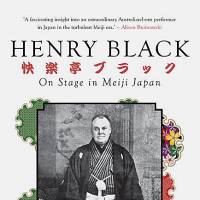Former journalist Ian McArthur's study of Henry Black, a Briton who became a professional rakugo-ka (storyteller) in Meiji Era (1868-1912) Japan, is a reminder that many colorful characters from that turbulent time — especially foreigners — remain little known to contemporary readers.
McArthur's subject certainly led an extraordinary life. Born in the colony of South Australia in 1858, he traveled with his family at age 7 to Japan, where he mastered the language and eventually became involved in politics, education, acting, writing and oral storytelling.
This book apparently sprung out of McArthur's doctoral thesis written for the University of Sydney, and that academic genesis tends to show in his conscientiously referenced explications of Black's background and social milieu, as well as in his highly informative but predominantly analytical appraisal of his subject's craft.
According to McArthur, it was around the early 1890s that Black carved for himself a niche as a teller of sensational stories set in distant Europe. Black's fictional detectives, jilted lovers, heiresses and other assorted characters thus inhabited "a world of fast trains, international travel, great metropolises which served as transport hubs, a legal code that guaranteed equality for all and amazing scientific discoveries." All of which allowed his aspirational Japanese audience to "vicariously experience modern Europe as a precursor of their own future."
Henry Black's life is colorful enough to inspire a rollicking work of historical fiction, and maybe it will someday — with thanks, no doubt, to this detailed survey, the first in English of an extraordinary life.


















With your current subscription plan you can comment on stories. However, before writing your first comment, please create a display name in the Profile section of your subscriber account page.